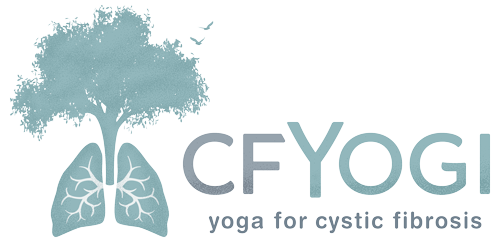This week in our focus on the yamas, the ethical practices of yoga, we’re shining the spotlight on asteya – or “non-stealing.” At the most basic level, this is schoolkid stuff — simply restraining ourselves from taking things that don’t rightfully belong to us.
This principle has been instilled in us all our lives, and has been encoded into cultures around the world for thousands of years, from the Ten Commandments to the Magna Carta to the Bill of Rights in the US Constitution. So why do we culturally have to be reminded of this so often? Why is it so hard for us to live out this intention? Basically because… life is complicated.
We human beings have a selfish and opportunistic nature. We get anxious about our safety and security, and taking more for ourselves than we really need can make us feel more secure, more comfortable, and more powerful than our neighbor. The inclination to accumulate more than we need runs deep. And taking this concept beyond the physical and tangible, we also steal ideas, words, and the precious commodity of time from others as we press our own selfish agendas.
The practice of asteya reminds us to honor the needs of others alongside our own. And on our yoga mat, we can practice that by honoring our own needs in the moment. So here are a few ways that you can remind yourself to practice Asteya on your mat, and in everyday life.
1. Practice gratitude for what you have, rather than pursuing endless accumulation of “more.”
The practice of gratitude can transform your everyday life. Rather than coveting what we don’t have, we find a refreshed appreciation for what we already own. Western culture (and American culture, in particular) put a lot of emphasis on possessions. The minimalism movement — exemplified in Marie Kondo’s “tidying up” method — became a sensation because our society was ripe for a fresh look at our relationships with our belongings, and their significance or insignificance in our lives.
There are a lot of ways to practice gratitude, many of which don’t require getting rid of everything you own (although that’s certainly one way to do it). You can say “thank you” to others. You can donate one of your possessions every time you bring something new into your home. You can donate bag of groceries to a food bank after you buy your own.
A gratitude practice when you eat is also a helpful tool because it gives you regular reminders throughout the day, at each meal. Take the time to savor each bite. Let the flavors dance on your tongue. For me, I find that the first bite of food is often the best one. The pleasure signal it sends to your brain tells you to eat more. But the more bites you take, the more the taste becomes familiar and you can become less satisfied by what initially was an exciting, joyful thing.
So before you eat, put a serving that intellectually and rationally looks like “enough” on your plate – no more, no less. Enjoy eating it. Then, stop eating when it’s gone. Granted, “enough” food may look different for someone with the high-calorie requirements of Cystic Fibrosis than someone without it. I spent almost four decades of my life with the approach that “every calorie is a good calorie” as I struggled to gain and keep weight on. Now, after having a new highly-effective CFTR modulator drug for the past six months, it’s easier to gain weight. Yay! But also… wow, I had a lot of food-related habits to re-learn.
The practice of gratitude helped me gradually retrain my eating habits so that I can eat less high-calorie (i.e. junk) food and be satisfied from healthier foods, with a calorie intake that’s more appropriate to my new, improved digestion. I can eat “better-for-you” food and still stay in the healthy BMI zone where my body has enough fat stores to protect me in case I get sick, and enough muscle to make me feel physically strong and capable of everything I want to do. And I’m so grateful for the foods (and miracle medication) that help me do that.
2. Take only what you need
Most of us don’t think of ourselves as thieves — we’re mostly law-abiding citizens who don’t outright steal things. But we often take more than our share of goods and critical supplies in our caveman-like tendency to stockpile resources for lean times (ahem, I’m looking at you, pandemic hoarders).
When you buy every bottle of hand sanitizer, every lysol wipe, every pack of toilet paper on the shelf at the grocery store, you are depriving someone else of the ability to stay clean and sanitary. When people bought up all of the N95 masks, resulting in a global PPE shortage for healthcare workers, our collective actions deprived front-line workers of their ability to do their jobs, threatening countless lives.
Over time, humanity has come to understand that taking more than our share is an infringement upon the freedoms of others. That’s why our constitutional liberties are written the way they are, so that our God-given human rights “cannot be infringed.” Rather than infringing upon someone else’s right to life, liberty, and the pursuit of happiness by our own selfish actions, asteya reminds us to consider the impacts of our choices upon others–giving everyone else a bit of grace and space to live fully and joyously.
3. Listen and honor the experience of others
The concept of non-stealing goes beyond just physical goods. People also co-opt the ideas, words, or experiences of others, using them for their own ends.
You know how sometimes you’ll be sharing a story with someone, and they jump in and finish your sentence, or say, “Oh I had the exact same thing happen to me!” Depending on how it’s done, it can either make you feel supported — “Hey wow, someone else has been through this too” — or it can make you feel like they aren’t even listening to your point and are diminishing the value of your perspective.
This phenomenon is is really common in situations where one party is marginalized. As a dominant voice interrupts it redirects the point to something that the initial speaker didn’t intend. The dominant speaker may even believe they are helping, but they may actually be drowning out rather than amplifying the point that the marginalized person wanted to make.
I reluctantly admit that I’ve spent a lot of my life being that “interrupter,” and not even realizing it in the moment. With the benefit of hindsight, I realize that my attempts to share a similar experience in an effort to empathize and find common ground didn’t always come across that way. In the worst of times, I’m a conversational steamroller, and it comes comes across as either arrogant or diminishing of others’ uniqueness and voice. (True story: On the first day of fourth grade, our teacher had us write down something unique about ourselves and share it with the class. In a misguided attempt at fostering connections and making new friends, I kept shouting out, “I’ve done that too!” 😂 It was not well received, but I didn’t realize why until years later.)
Nowadays, I practice listening instead of interrupting, and holding space for others. I practice giving grace to others who may interrupt me or interject their own experiences in place of mine, and realize they may just be looking for validation or a way to connect. How different would things be if instead of jumping in to conversations to insert our own experiences, we spent more time on listening and honoring what other people want to share with us?
4. Be fully present during your yoga practice
When we decide to practice yoga, we’re choosing to give ourselves the gift of our own time. We’ve chosen to prioritize our physical, mental, and emotional health. So why do we often “check out” during our yoga practice, and rob ourselves of the moment that we’ve chosen to give ourselves?
It can help to simply set an intention of asteya at the beginning of your practice. Remind yourself to experience the moment. Allow yourself a long, deep breath. Notice the physical sensations in your body — touch, sound, and smell. Acknowledge what sensations feel good, and which ones don’t, without judgment. Simply allow them to be what they are.
Practicing “non-stealing” of your own time on the mat can also help you bring this intention off the mat and into the rest of your day. Simply be present with your loved ones, using your senses to experience a shared moment with them. See the smile lines around their eyes. Listen to their voices. Taste and smell the food you make and eat together.
The more we choose asteya, deciding not to take attention, time, and resources from others, the more we all will flourish.











